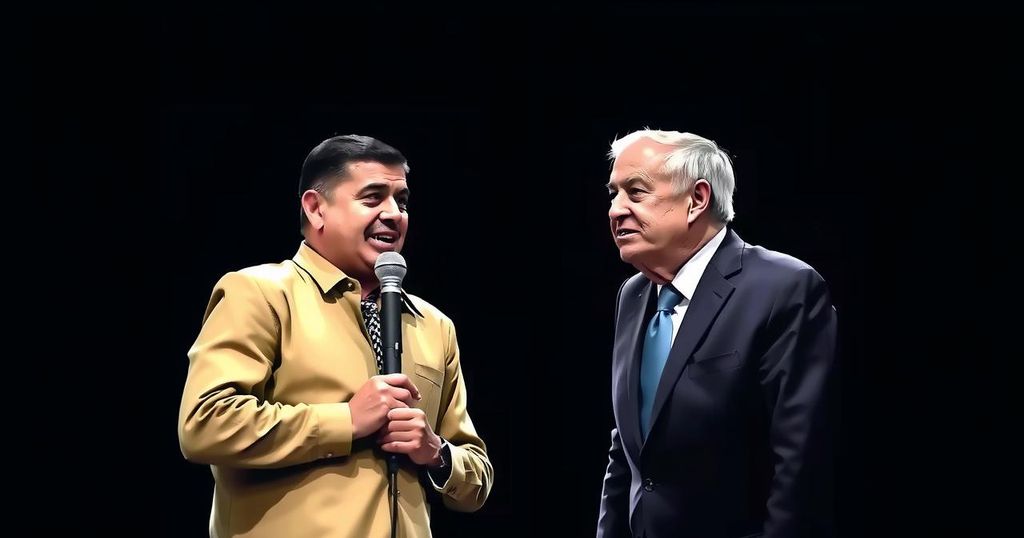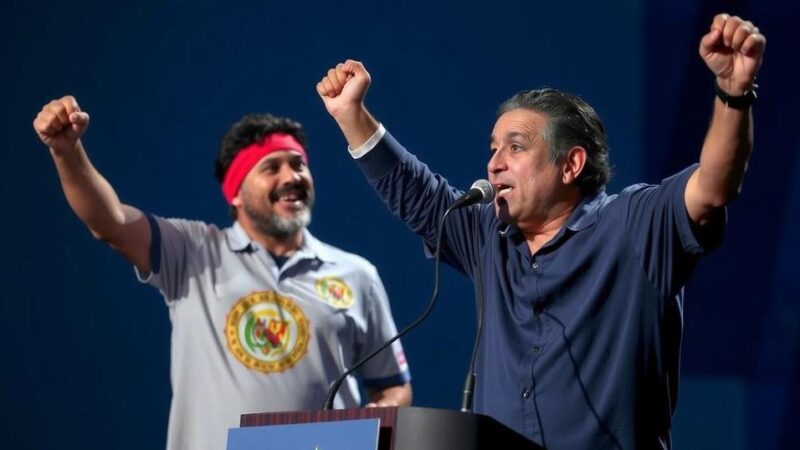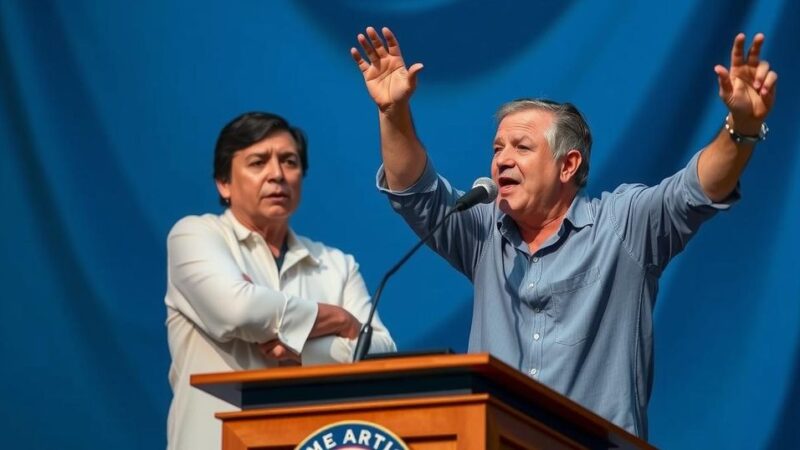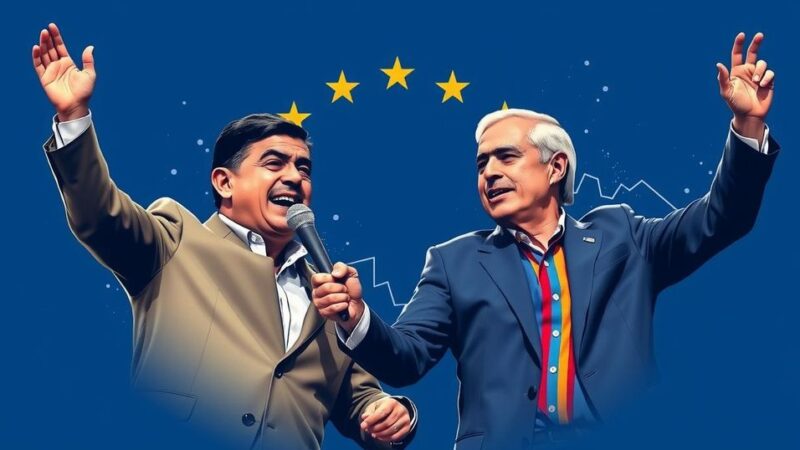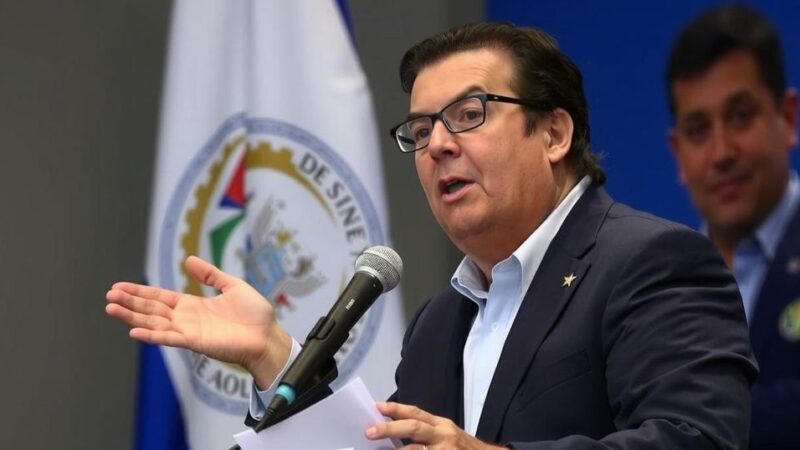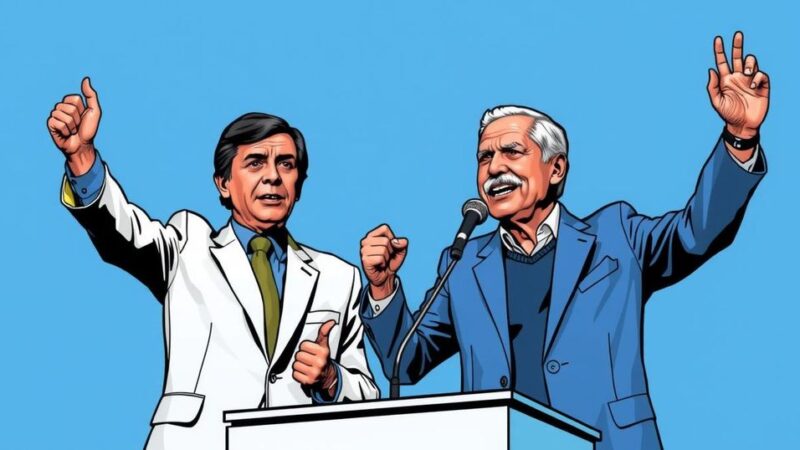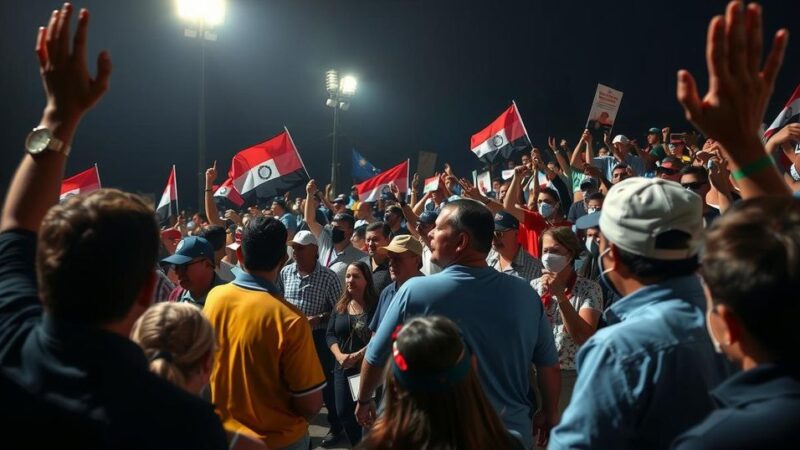The Uruguayan presidential run-off featured conservative Alvaro Delgado and leftist Yamandu Orsi, centering on themes of democratic coexistence and economic improvements. Orsi obtained 44% of the October vote, while Delgado, benefitting from third-place support, championed conservative economic policies. Both candidates reaffirmed their commitment to upholding election results amidst a calm atmosphere that highlighted Uruguay’s democratic stability, contrasting with surrounding countries.
In Uruguay, the recent presidential run-off election highlighted the theme of ‘democratic coexistence’ as conservative Alvaro Delgado and left-wing opponent Yamandu Orsi competed for the presidency. Occurring against a backdrop of political unrest in other Latin American countries, Uruguay’s election exemplified democratic stability. Yamandu Orsi, having secured 44 percent of the vote in the initial round, faced Alvaro Delgado of the National Party, who finished second with 27 percent but benefitted from the conservative support of third-place candidate Andres Ojeda.
Both candidates campaigned on economic improvements: Orsi advocated for raising wages for low-income earners while Delgado aimed to reduce bureaucratic hurdles and enhance trade relations, particularly with China. In a testament to their commitment to democracy, both leaders promised to accept and respect the election results, reflecting a shared desire for political unity. Observers noted the calm atmosphere surrounding the election, underscoring Uruguay’s reputation as a stronghold of democracy within the region.
Uruguay has emerged as a key player in recent Latin American politics, particularly as a symbol of democratic stability amid challenges faced by its neighbors. The presidential election is part of a wider trend in the region characterized by significant uprisings and political instability. With its relatively calm electoral process, Uruguay diverges from the turmoil seen in countries like Mexico and Venezuela, showcasing its robust democratic framework. This election follows the trend of ensuring that a peaceful transfer of power remains possible, a theme emphasized by the candidates in their campaigns and mutual respect for democratic processes.
In conclusion, the Uruguayan presidential run-off served as a clear indication of the nation’s commitment to democratic principles and coexistence. Both candidates exhibited a strong focus on the economy while promising unity and respect for the electoral process, reflecting Uruguay’s distinguished role in a region often marked by conflict. This election, free of violence and unrest, underscores Uruguay’s position as a beacon of stability in Latin America.
Original Source: www.aljazeera.com
